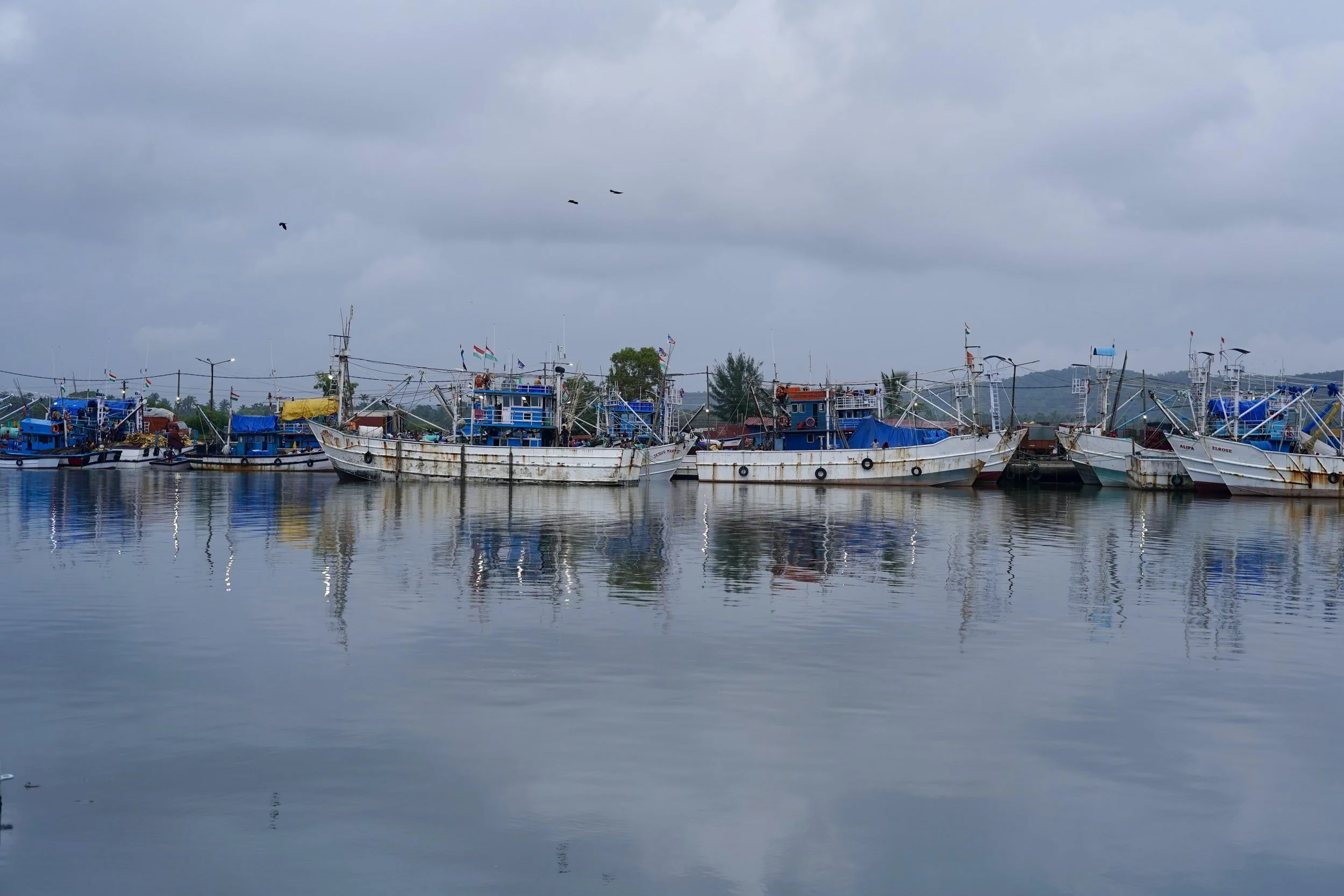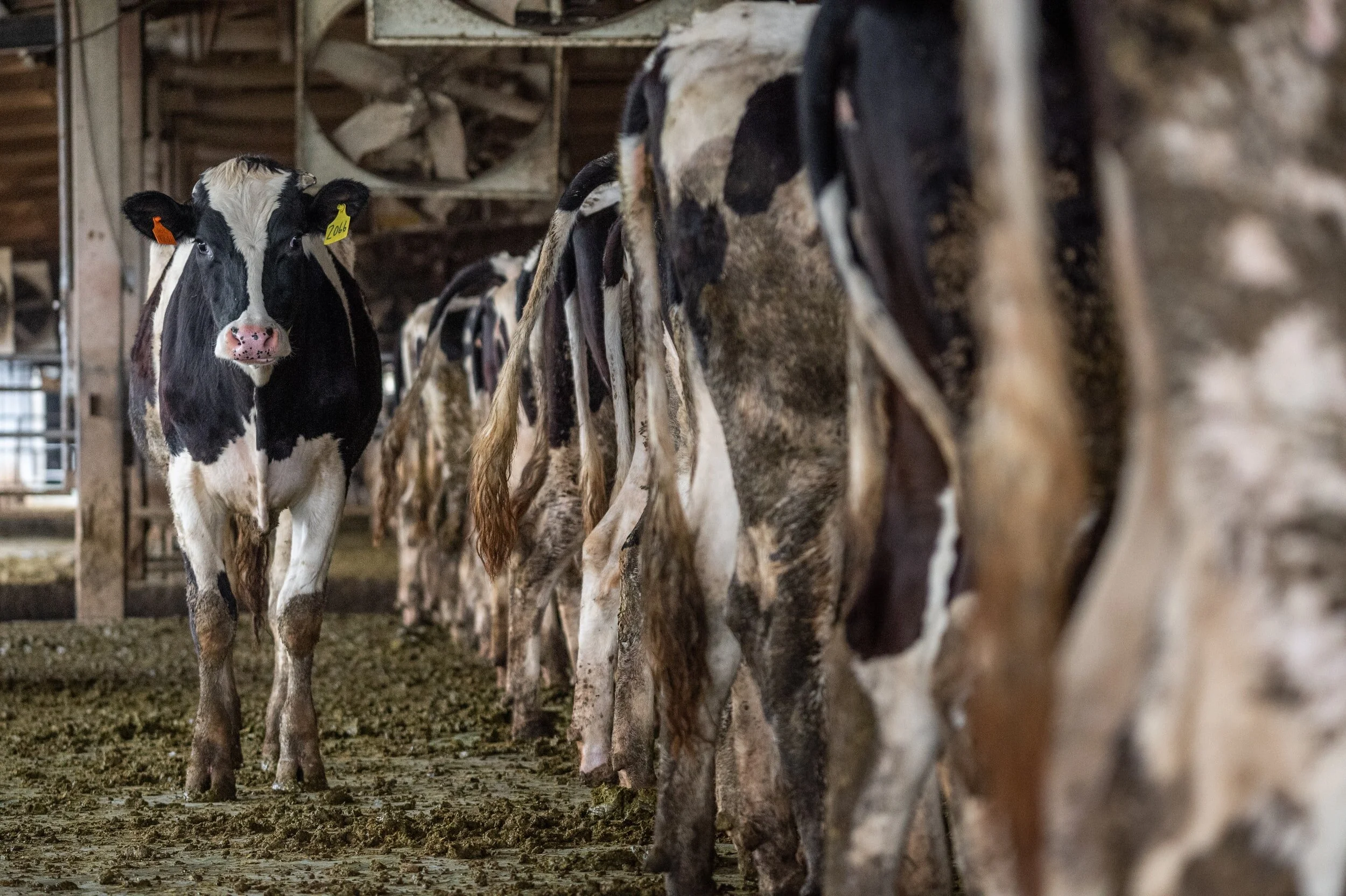Yesterday’s election results gave momentum to a national movement to #endtheexception (led by the Abolish Slavery National Network). We urge everyone, as you wait for the balance of power in Congress to be decided, to contact your representatives and demand they pass House Joint Resolution 53 and Senate Joint Resolution 21, identical proposals to amend the US Constitution “to prohibit the use of slavery and involuntary servitude as a punishment for a crime.”
Halloween Chocolate is Haunted by Child Labor
At Corporate Accountability Lab, we love chocolate as much as anyone, but this Halloween, we’re haunted by the harrowing stories cocoa farmers told our attorneys during field visits across Cote d’Ivoire and Ghana last month. Some stories in particular stand out: one village’s entire harvest — thousands of dollars’ worth of cocoa beans — being stolen; twelve-year-old children going to work on cocoa farms full time; company representatives adjusting bean-weighing scales so that farmers are credited for less production than they are owed; devastating tree diseases wreaking havoc on cocoa farms, decreasing yields by as much as 60 percent; companies refusing to pay the premiums they promised to farmers; families without food or access to any sort of medical care; and communities without schools and teachers.
Universal Jurisdiction: Complaint on Uyghur Genocide Submitted to Argentine Court
Lawyers acting for the Uyghur Human Rights Project (UHRP) and the World Uygur Congress (WUC) filed a criminal complaint in Buenos Aires for genocide and crimes against humanity committed against Uyghurs and other Turkic people. If Argentine officials hear the case, it will be the first time that evidence of the genocide happening in northwest China has appeared before a court.
Advocates Urge CBP to Block Imports of Sugar from the Dominican Republic, Citing Forced Labor
For decades, Central Romana’s sugarcane workers in the Dominican Republic have labored under dangerous conditions, often working thirteen hour days in the hot sun, cutting sugarcane with machetes, and earning poverty wages. Most workers live in Central Romana’s bateyes (essentially company towns) in dilapidated homes, many of which do not have running water or electricity. Moreover, most of Central Romana’s workers are Haitian or of Haitian descent. Although many were born in bateyes, they often lack documentation and regular immigration status – a result of discriminatory laws. Central Romana has exploited their workers’ vulnerability to keep them in conditions of forced labor.
The Uyghur Forced Labor Prevention Act: CBP Must Enforce to the Fullest Possible Extent
Today, June 21, 2022, the Uyghur Forced Labor Prevention Act (UFLPA) went into effect. This legislation passed with overwhelming bi-partisan support, a rarity in this current political climate. The UFLPA establishes a rebuttable presumption that no goods produced wholly or in part in the Xinjiang Uyghur Autonomous Region (XUAR) may be imported into the US. Importers may rebut the presumption by presenting clear and convincing evidence that the goods were not produced using forced labor – a high bar.
CAL joins amicus brief supporting victim-survivors of human trafficking in Thai factories serving U.S. seafood market
CAL and 18 other human rights organizations recently filed an amicus brief with the United States Ninth Circuit Court of Appeals in support of the plaintiffs in Keo Ratha, et al. v. Phattana Seafoods, Co. Ltd. et al. (Ratha). The Ratha plaintiffs, Cambodian villagers living in poverty, allege that several US and Thai companies violated US and international law by engaging in a joint venture that relied on trafficked and forced labor of plaintiffs and others to produce shrimp and seafood for export to the US market. The amicus brief, written by Global Labor Justice-International Labor Rights Forum, supports the plaintiffs’ petition for rehearing en banc of a Ninth Circuit decision that would preclude them from seeking redress against the defendants and set dangerous precedent for other victims of trafficking and forced labor seeking justice in US courts.
Major tuna company sued for claiming sustainability while likely relying on forced labor
GLJ-ILRF is suing Bumble Bee under the District of Columbia Consumer Protection Procedures Act (CPPA) on behalf of itself and the general public, in the interest of Bumble Bee consumers in Washington, D.C. GLJ-ILRF, which is represented by Richman Law & Policy, seeks a declaration from the court that Bumble Bee’s practices violate the CPPA and an injunction to prohibit the company from continuing to engage in misleading advertising.
GLJ-ILRF’s claims that Bumble Bee has engaged in false and deceptive marketing are based on the company’s representations about a “fair and safe supply chain,” including that it is “best-in-class” for worker safety standards and “champion[s] sustainable fishing,” despite substantial evidence of forced labor and worker safety violations.
Export Controls and Human Rights
Corporate Accountability Lab has been working on blocking imports into the United States of goods produced using forced labor, relying largely on Section 307 of the Tariff Act of 1930. This blog looks at possibilities for using controls on exports as a way of advancing human rights. The human rights issues here do not center on how goods were produced; they center on how goods are likely to be used. Recent statements joined by the United States emphasize the need to be proactive in ensuring that advanced technologies are not used for such purposes as state-sponsored, repressive cybersurveillance. The technologies at the heart of this effort include artificial intelligence and advanced surveillance technologies (e.g., facial recognition technologies).
No More Safe Harbors: The International Need for Import Prohibitions on the Products of Forced Labor
Across the globe, an estimated 25 million people work in conditions of forced labor. In many of these cases, the private companies that supply the cotton, cocoa, and coffee we use every day directly benefit by producing and buying goods at lower costs.
Legal prohibitions on importing goods produced with forced and prison labor authorize customs and border officials to block goods from entering major markets, a strong incentive for companies to clean up their supply chains. Import prohibitions can fundamentally challenge companies’ profit models and thus their behavior: with the ability to sell goods in a country at risk, a company’s incentive to cut costs by using forced and prison labor drops drastically.
Introducing Our New Special Advisor Dean Pinkert
CAL is excited to introduce our newest staff member, Dean Pinkert. In this introductory blog, Dean discusses his background and what led him late in his career to join CAL and focus on international human rights and environmental sustainability.
Dean is highly motivated to “give back” after having achieved his goals in private practice and in government. He takes this to mean embracing a wider agenda--leveraging the law to advance global human rights and environmental sustainability--as well as serving as a resource for CAL colleagues and allies.
CAL files suit against Hershey and Rainforest Alliance
Corporate Accountability Lab (CAL) is excited to announce that on October 27, 2021 we filed suit against Hershey and the certification scheme Rainforest Alliance in a consumer protection case in Washington, D.C. Superior Court. CAL, as the plaintiff in the case, is suing the defendants -- Hershey and Rainforest Alliance -- for false and deceptive marketing representations on certain Hershey chocolate products. We are bringing suit under the Washington, D.C. Consumer Protection Procedures Act (“CPPA”), a consumer protection statute that allows public interest organizations like CAL to sue on behalf of the general public.
CAL finds evidence of child labor on Rainforest Alliance certified farms
In 2001, eight cocoa and chocolate companies came together to sign the Harkin-Engel Protocol, a voluntary agreement in which companies promised to eradicate child labor in the West African cocoa industry by 2005. Twenty years after the agreement went into effect, an estimated 1.56 million children work in the cocoa industry in Cote d’Ivoire and Ghana, which produce about two-thirds of the world’s cocoa. About 1.48 million of these children are engaged in hazardous child labor, which includes using a machete, carrying heavy loads -- often of cocoa beans -- and spraying pesticides.
CAL and IRAdvocates Provide New Evidence of Forced Child Labor in the Cocoa Sector in Wake of Supreme Court Decision in Nestle v. Doe
On June 24, 2021, Corporate Accountability Lab (CAL) and International Rights Advocates (IRAdvocates) submitted new evidence of forced child labor and trafficking in the Ivorian cocoa sector to Customs and Border Protection (CBP) under Section 307 of the Tariff Act. This evidence was submitted as a supplement to a 307 petition we filed almost a year and a half ago, in February 2020. In both petitions we request that CBP issue a Withhold Release Order (WRO) to stop the importation of all cocoa and chocolate produced with forced child labor from Cote d’Ivoire.
CBP Issues WRO Targeting Silica-Based Products Used in Solar Panels By Hoshine Silicon Industry Co., Ltd.
On June 24, 2021, US Customs and Border Protection (CBP) issued a Withhold Release Order (WRO) stopping imports into the US of silica-based products produced in whole or in part by the Chinese company Hoshine Silicon Industry Co., Ltd., located in the Xinjiang Uyghur Autonomous Region (XUAR). The WRO comes as a result of CBP’s findings that Hoshine uses forced labor in its silica-based product factories, building upon a wave of recent reports of human rights abuses in corporate supply chains in Xinjiang.
COCOBOD’s Unrealised Potential: Promoting Human Rights, Welfare, and the Environment in Ghana’s Cocoa-Growing Communities
On June 17, 2021, Corporate Accountability Lab joined the University of Ghana School of Law, the Northwestern Pritzker School of Law Center for International Human Rights, and SEND Ghana to launch the report, COCOBOD’s Unrealised Potential: Promoting Human Rights, Welfare, and the Environment in Ghana’s Cocoa-Growing Communities.
Supreme Court Upholds Intolerable Status Quo in Nestlé USA v. Doe, Rejecting Claims of Trafficked Children
On June 17, 2021, the US Supreme Court issued its decision in Nestlé USA v. Doe, a case brought on behalf of six Malian plaintiffs who had been trafficked and forced to work on cocoa farms in Cote d’Ivoire. The former forced child laborers allege that they had been tortured and enslaved. They further alleged that Nestlé USA and Cargill aided and abetted the harms against them by providing financial and technical support for exclusive purchasing rights to farms it knew or should have known exploited children.
Fair Trade USA & The Failures of Eco-Social Certification
When we choose to purchase a product that bears a certification label-- like a yogurt with a fair trade stamp-- we may assume that the workers and environment along the supply chain were respected in the product’s development. But the social auditing and certification industry behind such certifications do not always have the impacts we might think. Fair Trade USA’s recently-launched Certified Dairy label is an example of how social auditing and certification programs that are not worker-driven all too often end up as greenwashing and/or fairwashing schemes and fail the workers they are meant to protect.
Biden Administration Executive Order on Supply Chains is an Opportunity to Fight Forced Labor
In February 2021, just a month after taking office, President Biden issued an Executive Order (EO) aimed at increasing the resilience of US supply chains. The EO instructs the heads of numerous agencies, including the Departments of Commerce, Defense, Health and Human Services and Energy, to conduct a 100-day review of supply chain risks related to such goods as semiconductors, batteries, minerals and other rare earth elements, and pharmaceuticals.
From Cote d’Ivoire to Chicago: The Impact of Covid-19 on Workers in the Chocolate Supply Chain
With Valentine’s Day upon us, we know that chocolate sales will increase. Hearts of chocolate wrapped in red will find their way into peoples’ homes, along with truffles and fancy bars. But as we celebrate yet another chocolate-focused holiday, it’s important to remember how chocolate is produced and who is making and selling it.
CBP issues Regional WRO Against all Cotton and Tomato Products from XUAR
On January 14, 2021, Customs and Border Protection (CBP) issued a Withhold Release Order (WRO) banning all cotton and tomatoes and all goods made with cotton and tomatoes from the Xinjiang Uyghur Autonomous Region (XUAR) in China from entering the United States. Under Section 307 of the Tariff Act of 1930, CBP has the authority to prohibit the importation of all goods produced with forced or prison labor.

























